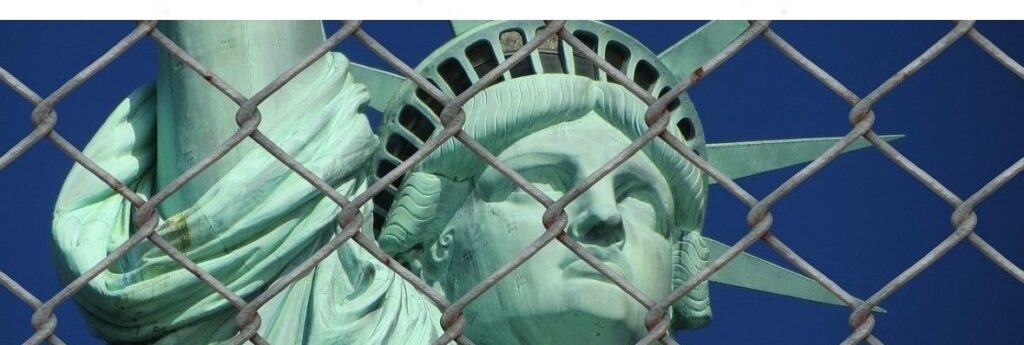According to new report, the United States ranks “nearly dead last” in global competitiveness among top travel markets – a result the US Travel Association (USTA) calls “stunning” and for which it blames decades of underinvestment and a lack of focus and coordination from federal policymakers.
USTA commissioned the research by Euromonitor International to address its slow recovery and declining global travel market share and to assess the competitiveness relative to other top countries for global travel. The research gave the US a 47% score, placing 17th out of 18 countries. Canada ranked fifth in the report with 59%.
Topping the list was the UK (72%), followed by France, Turkey, Italy, Canada, UAE, Spain, Germany, Greece, and Thailand.
The US notably also trailed Australia, Brazil, Saudi Arabia, South Africa, Mexico, and Singapore. Only China ranked behind the US.
“US officials cannot ignore the bold, decisive steps other nations are taking to advance and modernize their travel economies,” said USTA President and CEO Geoff Freeman. “The United States should aspire to lead the way into a new era of seamless and secure travel and capitalize on the many opportunities to grow this critical sector.”
US Travel noted that while the US is still the “most desired destination” for global travellers, it slid to third in total visitations (behind Spain and France). In 2023, it is estimated that the United States welcomed nearly 67 million international visitors – down from 79 million visitors in 2019 and only 84% recovered from pre-pandemic levels, which is “far behind other competitors’ recovery rates.”
U.S. global market share for long-haul travel declined from 5.4% in 2019 to 5.3% in 2023.
The Euromonitor study assessed 18 top countries for global travel across four weighted categories: 1) National Leadership, 2) Brand & Product, 3) Identity, Security & Facilitation and 4) Travel & Connectivity with the US underperforming in the categories of National Leadership and Identity, Security & Facilitation, and notably placing last in terms of government leadership, according to USTA.
Ramifications
Importantly, the US’s dismal performance and failure to address inadequacies across the US travel system creates “serious economic risk,” according to USTA, citing analysis by Tourism Economics:
- When a new daily international flight (Boeing 787-10) cannot be accommodated due to Customs and Border Protection staffing shortages, the US economy loses up to $227 million per year.
- The inefficient aviation security screening process could deter American travellers from as many as three million domestic trips in 2024, resulting in spending losses of $7.4 billion.
- The US risks losing 39 million visitors and $150 billion in spending over the next 10 years due to excessive visitor visa wait times.
Solutions
In 2024, the US could gain 2.4 million more visitors if the market were unconstrained by visa wait times, says the USTA, which is urging an immediate expansion of the Visa Waiver Program as a significant tool in boosting competitiveness. It notes that the five countries added to the program from 2008 to 2014 experienced a 52% gain in visitation to the US over the first three years.
In conjunction with the new Euromonitor analysis, USTA has also launched a solutions-oriented Seamless and Secure Travel Commission tasked with creating a vision and making policy recommendations to modernize the travel experience, increase US competitiveness and facilitate growth. The commission plans to release its policy recommendations this Fall.
“The US can no longer sit out of the race to modernize travel,” said Freeman. “Today’s situation is decades in the making. It is time the US government collectively gets serious about establishing a metrics-based plan to claim our spot as the top destination in the world, which will pay dividends for decades to come.”

